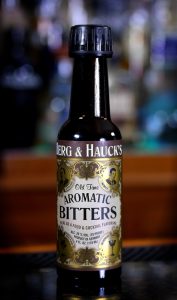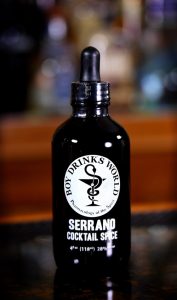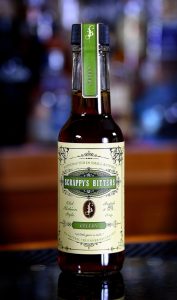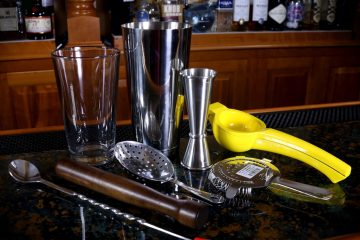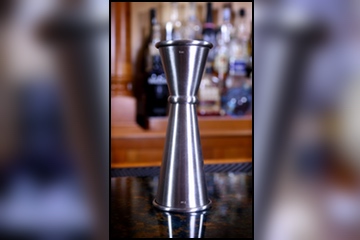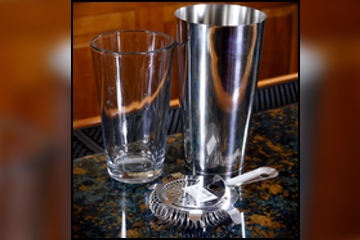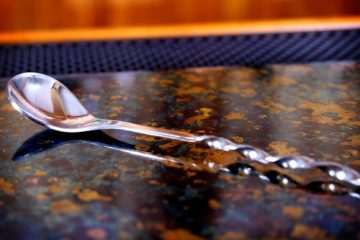Cocktail Bitters in a Brief History
Cocktail bitters have a rich history. The original definition of “cock-tail” by Harry Croswell in The Balance and Columbian Repository dated (1806) says a traditional cocktail is “spirits, sugar, water and bitters.” These herbal tinctures we define as “bitters” existed prior to the concept of the cocktail. Once upon a time, bitters were mostly labeled as a “cure all” or medicine for illness.
These crazy concoctions were barks, herbs, roots, and spices combined to solve but that all changed in the mid-1800s. Somewhere along the line these bitters were included in a mix for pleasure more than as an herbal remedy. However, the “cocktail” concept has existed out of necessity for a hundred years or more.
Look at the history behind a gin & tonic and you’re heading in the same direction: a bitter quinine (tonic) to prevent scurvy along side gin and citrus to make the quinine easier to consume and a cocktail is born. To say bitters have a tradition in cocktails would be an understatement, they were fundamental to the design. That being said, many years went by in which cocktail bitters were simply ignored.
Why use cocktail bitters in a drink?
Simply put, cocktail bitters are the “salt & pepper” of your cocktail. Can you eat a hamburger without pepper or salt? Of course. Can you make a pasta sauce without basil, thyme or other herbs and spices? Sure you can…but isn’t it more exciting when you utilize spice?
If you’re excited about cocktail creation and want to spread that excitement with friends and family then build better cocktails. To build a cocktail that’s balanced, flavorful and full of life is part of your quest. Cocktail bitters are here for you to provide you a tool to blow the minds of the imbiber.
Over the last ten years cocktail bitters have thrived, with craft bitter businesses popping up all over the United States and into Europe. Today, bartenders know why cocktail bitters are needed in a drink. The biggest challenge has been helping the customers understand why they need cocktail bitters in a drink!
Enhancing Potency in a Drink
Cocktail bitters can take a spirit which is deeply hidden in a cocktail and bring it out vibrantly. When balancing a cocktail, the additional bitters will enhance the potency and alcohol within the drink. The herbal tinctures within the bitters help drive some spirits center stage; it’s not because of the high proof concentration of the bitters, but the process of its integration that pops the spirit to the front.
Enhancing Aroma in your cocktail
It’s very common for bitters to be used to bring out aromatic sensations in a cocktail. This is one reason many bitters have been branded or labeled “aromatic bitters.” When used in drops on the foam of an egg white or floating on a cocktail, cocktail bitters work much like a garnish: great aroma and neat presentation.
Don’t let the branding fool you, all bitters are aromatic bitters! The herbs and spices within cocktail bitters lends itself to an aroma. These spices can include floral notes such as those found in lavender bitters or citrus notes found in grapefruit bitters along with dozens of other options. Try a floral or citrus bitter in cocktails using light spirits like gin, vodka, or rum to create a new twist in your old classics.
Enhancing Flavor in your cocktail
Cocktail bitters offer balance of flavors when something just feels “missing.” No, it cannot fix a bad cocktail, but it can make a cocktail that just a bit uneven feel straight as an arrow. Some folks say bitters “tie the room together” much like a great accent piece or beautiful carpeting in the room.
It’s often possible to take any cocktail bitter and bring out new vibrant accents in an otherwise ordinary cocktail. But, a master of the craft will find the right flavor pairing to take that cocktail from great to award winning levels. A home bartender can learn a lot from playing with a few bottles of bitters to enhance their taste experiences.
What bitters do I need to buy?
Much like my spice rack, my bitter collection is out of control–I have a bitter for everything. But, many folks ask the question, “these things are really expensive, what do I actually need to buy?” Great question. Let’s first cover costs on bitters, it’s not unusual to spend $16-$22 on a craft cocktail bitter in a 5 ounce bottle…that seems expensive. Let’s do the math, a cocktail calling for “3 dashes” of bitters:
1 dash = 1 ml;
3 dashes = 3 ml
5 oz bottle = 147.5 ml
1 bottle = 49.16 cocktails at 3 dashes per cocktail ( 147.5 ml / 3 = 49.16 )
What other cocktail ingredient do you own that will create a yield of 49 cocktails? Given many drinks often call for 1 – 2 dashes per drink, you could be making 49 – 147 cocktails for your $20 investment.
Now that the cost is out of the way, let’s look at a few you should probably own (if you produce cocktails in the categories).
If you love a Bloody Mary?
- Scrappy’s Firewater Bitters
- Scrappy’s Celery Bitters
- Boy Drinks World Serrano Bitters
If you love gin cocktails?
- Fee Brothers Rhubarb Bitters
- Bittercube Orange Bitters
- Angostura Bitters
If you love whiskey cocktails?
- Angostura Bitters
- Bittercube Cherry Bark Vanilla Bitters
- Scrappy’s New Orleans Bitters / Peychaud’s Bitters
If you love vodka cocktails?
- Scrappy’s Grapefruit Bitters
- Fee Brothers Cranberry Bitters
- Bittercube Trinity Bitters
If you love rum cocktails?
- Hella Bitters Aromatic
- Bittercube Trinity Bitters
- Berg & Hauck Old Time Aromatic Bitters / Angostura Bitters
If you love tequila cocktails?
- Bittermens Xocolatl Mole Bitters
- Bittercube Corazon Bitters
- Boy Drinks World Serrano Bitters
If you love classic cocktails?
- Angostura Bitters
- Peychaud’s Bitters
- Regans’ Orange Bitters No. 6
The idea of these category trio’s of bitters just makes selection slightly easier for the beginner home bartender. You can mix and match in categories, but I know folks love a nice guideline for beginners! Limiting to just three is tough as I love a good Scrappy’s Chocolate Bitters in my whiskey sours but that decision is best made when you are more comfortable with cocktail bitters. To dip your toe into the cocktail select, you can always look into a cocktail bitters sampler kit which contains a wide array of flavors from given brands.
In conclusion, cocktail bitters do not have to be another intimidating ingredient reserved only to professional craft bartenders. Cocktail bitters can be a staple ingredient to any aspiring home bartender and learning some subtle nuances can transform you into the life of your next party.
Watch Lesson 01: Understanding Sugar & Simple Syrup In Cocktails.










